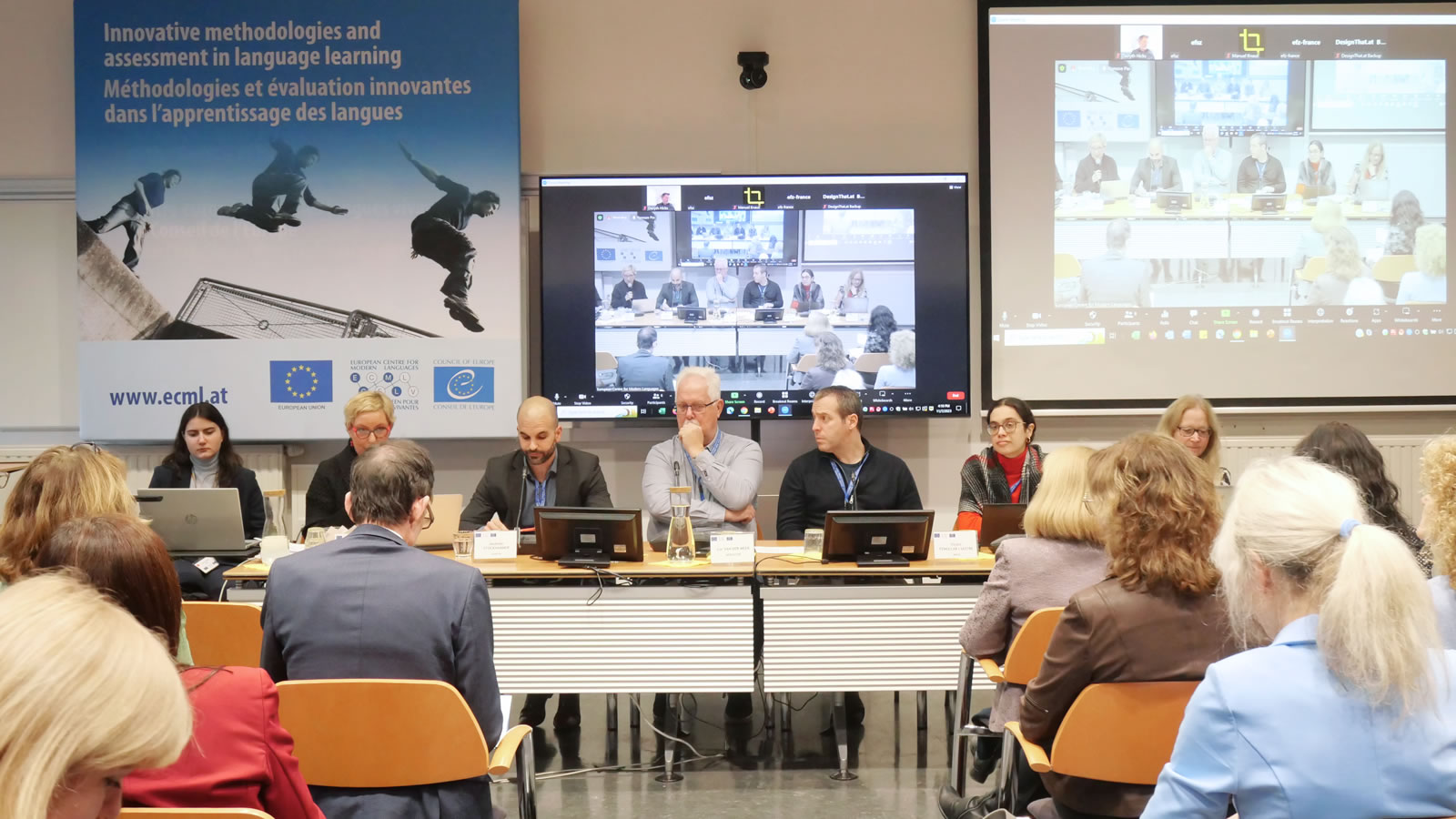
The “Strengthening support for regional and minority languages within a plurilingual context” colloquium took place at the European Centre for Modern Languages in Graz on 7 November within the context of the ECML’s cooperation action with the European Commission.
Against the background of more than half of the member states of the Council of Europe officially recognising regional or minority languages (RMLs) within their borders for legal or administrative purposes and an estimated number of over 50 million speakers of RMLs, the declared aims of the colloquium were to:
- strengthen awareness of the importance of regional and minority languages (RMLs) - promoting diversity at all level
- take stock of current actions in this wide area and highlight examples of interesting educational practice which are potentially transferable/adaptable to other context
- promote cooperation and synergies where possible among stakeholders;
- identify pedagogical needs of the RML professional community, with a view to developing further action at an international level.
Involving 50 participants from 30 countries (as well as a livestream audience) - from schools, teacher education institutions, ministries of education, associations and international NGOs, the event focused on educational practice in contexts where RMLs are prevalent. It highlighted examples of practice covering a wide number of different regions and languages, the presentations addressing themes such as ‘Romani plurilingual policy experimentation’ (Slovakia), ‘Promoting the Romansh language to different target groups’ (Switzerland) ‘Policy and innovative practice in teaching Walloon language’ (Belgium) and ‘France and its languages: towards a shift in paradigm’ (see programme). These illustrated, in particular, features which are both relevant for and potentially transferable/adaptable to other contexts.
The event concluded with a round table focusing on systemic aspects relating to RMLs, involving representatives from ministries of education, INGOs and networks engaged with RMLs and experts on the European Charter for Regional or Minority Languages and the Framework Convention for the Protection of National Minorities.
Based on the very successful event, it is now envisaged to examine more closely the pedagogical needs of the RML professional community, with a view to conducting further action at an international level, in the form of a project /training and consultancy activity and/or research on issues of key concern. As a direct follow-up to the colloquium, a first step will be to develop a set of online examples of practice/case studies showcasing a wide variety of different RML contexts.
Recordings of the individual presentations are available on the dedicated website: https://www.ecml.at/RMLcolloquium